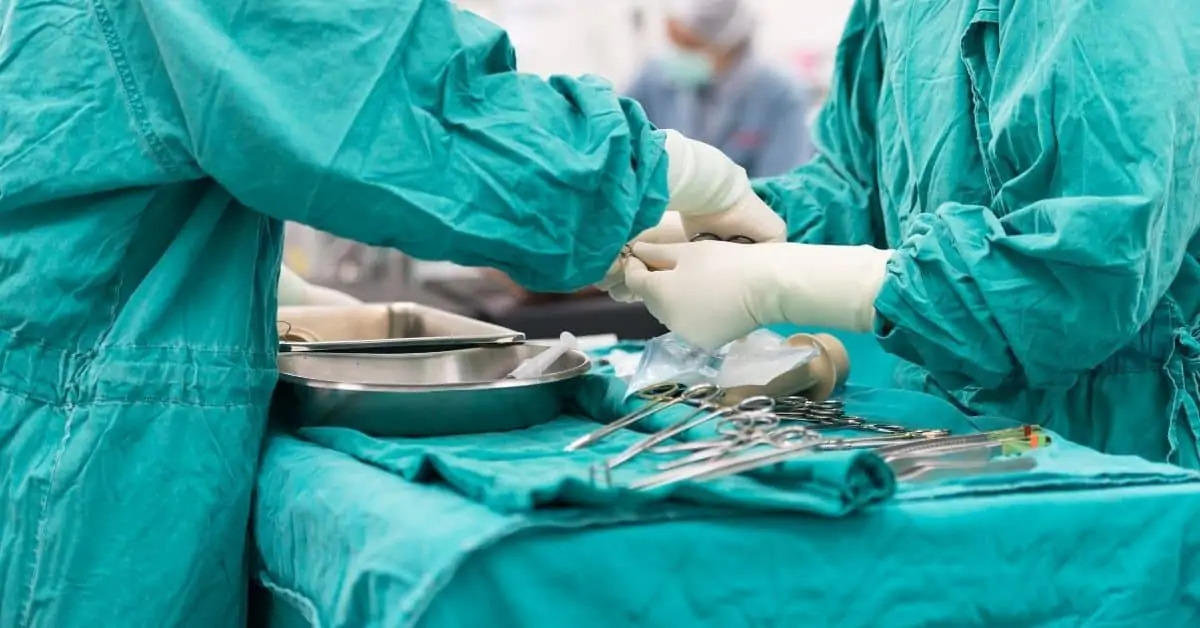What did you think when you heard the word “Operating Room”? Some would think about how difficult the job is for someone planning to be a scrub nurse or circulating nurse. Others might think about these medical professionals as heroes for doing their work during surgeries.
Because these professionals work in a particular area, some people might think they remain background and help nurses. However, other people might not know much about operating room jobs and professions like circulating nurses and scrub nurses. They might not even know if there are any other specific jobs besides those two.
Circulating Nurse Vs Scrub Nurse:
This article explains what scrub nurses (perioperative nurses) and circulating nurses do regarding surgeries. It also highlights the difference between them regarding job scope and responsibility. These professions are crucial because if one of them fails to do their work during surgery, the patients will have a hard time getting treatment. Find out more by reading this article.
What is a Circulating Nurse?
A Circulating Nurse is a registered nurse (RN) who manages the flow of patients and materials in a surgical suite also called an operating room nurse. They are responsible for verifying that everything is ready before surgeries begin. Their tasks include:
- Checking supplies and additional materials.
- Helping patients change to appropriate clothing.
- Obtaining consent forms from patients
- Handing the surgeon and surgical instruments.
The term “circulate” means moving around or passing among several things. Because it is essential to keep things moving quickly, the circulating nurse must present at least one of these qualities: speed, intuition, responsiveness, and composure. The circulating nurse gives among all these responsibilities during surgery and makes sure that they keep moving until everything runs smoothly throughout the process.
How does a Scrub Nurse Work?
When it comes to the working method, the scrub nurse must ensure that all surgical equipment or instruments and materials are readily available for surgeons. Aside from performing these tasks, the scrub nurse must also:
Pass Instruments
Like a circulating nurse during surgery, the nurse must immediately provide any instrument requests asked by the surgeon. The scrub nurse uses a “back table” where they can find supplies and equipment during surgeries to locate them quickly.
Prepare Materials
Before starting procedures, scrub nurses prepare materials needed inside the Operating Room (OR). These include gloves, drapes, and solutions used by surgeons to clean their hands before surgery begins. They also ensure that everything is in order on their supply cart so they will not have a hard time locating things if requested to do so by surgeons during procedures.
Mark areas of interest
A scrub nurse marks areas of a patient’s body that are to be operated on using special pens. These markings help surgeons locate these areas during procedures.
Scrub nurses must make sure that they follow all safety standards during surgeries to avoid accidents. To pass instruments and materials safely, the nurse should always wear other scrubs inside an Operating Room (OR). They must also wear their gloves, masks, and gowns before entering the Operating Room (OR) to ensure the safety of every member of the surgical team.
Circulating Nurse Vs Scrub Nurse: Differences Between a Scrub Nurse and a Surgical Tech
A scrub nurse and surgical tech work as part of a surgical team. Both of them maybe have some same duties during surgeries. But it’s essential to understand the differences if you choose between these careers. Here are the key differences between a scrub nurse and a surgical tech:
Job Responsibilities
As stated above that, it is possible that the scrub nurse and circulating nurse can share some duties like preparing materials before the surgery and passing instruments. One of the main differences between these two roles is that a scrub nurse has additional technical responsibilities.
In some cases, they can assist the surgeon with more technical procedures during surgery. Additionally, they may monitor health vitals and help patients when changes occur suddenly.
On the other hand, the scrub nurses work in the post-anesthesia recovery room, where they monitor patients who have just woken up from anesthesia. They also help them wake up gradually to make sure that no complications occur after surgery.
Depending on the case, scrub nurses may or may not get a chance to meet the patient personally before surgery. Still, the circulating nurse gets to know their patient personally and guides them through the process of what will happen during procedures.
Education Requirements
Both of these paths have different educational requirements, which means that you should do your research before choosing the right career for you.
The degree programs for scrub nurses are quite demanding since they need extensive knowledge of many different medical procedures and tools. They also need to perform surgical procedures like suturing, cutting, and clamping vessels. You can become an RN first or attend a diploma program specially designed for this career path.
On the other hand, surgical technologists may not necessarily need formal nursing training. The educational requirements can include a high school diploma with courses in biology and chemistry. If someone wants to specialize in anesthesia, they have to take other human anatomy and physiology classes during their training period.
Job Outlook & Annual Salary
Scrub Nurses enjoy excellent job opportunities, and they can work in a wide range of different medical areas. They have a bright future ahead as many new surgeries are being developed, and the job market is also stable for this career path. The national average salary for surgical nurses, including scrub nurses, is $118,766 per year.
On the other hand, surgical techs enjoy a positive outlook since more hospitals open every year, and technological advancement leads to better procedures with shorter recovery times. Surgical nurses have become valued members of modern healthcare teams who perform essential duties during surgeries. The average annual wage for surgical technicians is $71,104.
Positive & Negative Points
Scrub nurses must be able to cope up with stressful working conditions inside Operating Rooms (OR). They are constantly exposed to chemicals and blood, which requires an adamant personality. If you cannot deal with this kind of pressure, you should choose another career instead.
On the other hand, surgical techs have significantly lower education requirements, so they can easily find employment after completing an associate program or vocational training. One can look forward to earning an average salary depending on their work experience and skillset, so it may be difficult for newbies in this field to cover all their basic needs.
Which Should You Choose?
You have all the information you need, and in the end, the choice is yours to make. So which specialty should you choose?
If you are passionate about patient care, you can take advantage of your strong interpersonal skills and become a circulating nurse. You will liaison between the surgeons and their patients, which provides excellent emotional satisfaction.
Or suppose you find all this stress unbearable. Surgical techs have a significantly lower educational requirement, so it’s a good fit for those who want results quickly without spending years on education. The experience may not be as rewarding as being a scrub nurse, but it provides stable employment with regular salaries depending on skillset and work performance.





